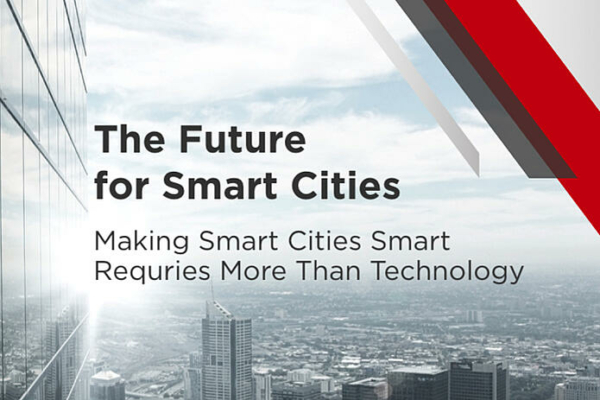The Future of Smart Cities
A smart city is defined as an urban development that integrates information and communication technology (ICT) and the Internet of things (IoT) technology to manage a city’s assets. In the short term, smart cities are the digital world we know now brought to life with benefits and disadvantages. Implementing a new way of living seems like an easy transition for an innovative society, however, there are setbacks and advances that should be accessed to prepare you for the speed and complexity of tech integrations near you.
Generations of early adopters find themselves asking “What’s stopping us?” and “What barriers are necessary for us to overcome in the near future?” Seize the opportunity to learn more about smart cities before the chance to capitalize on smart environments passes by.
Don't get left behind, download your copy and learn about:
- Barriers to overcome
- Steps toward seizing opportunities beyond technology
- Questions to consider when accessing a cities readiness for smart platform implementation



 About the Authors
About the Authors